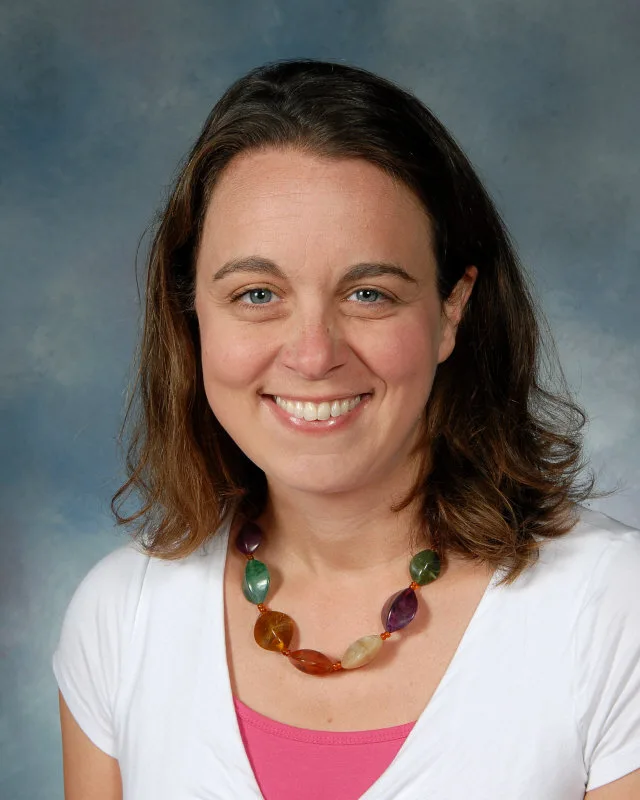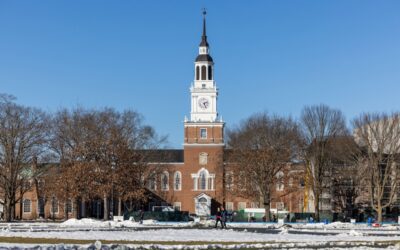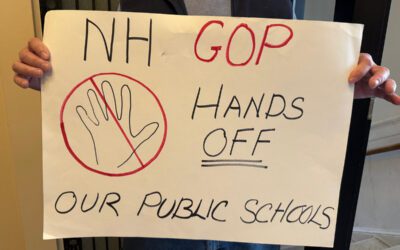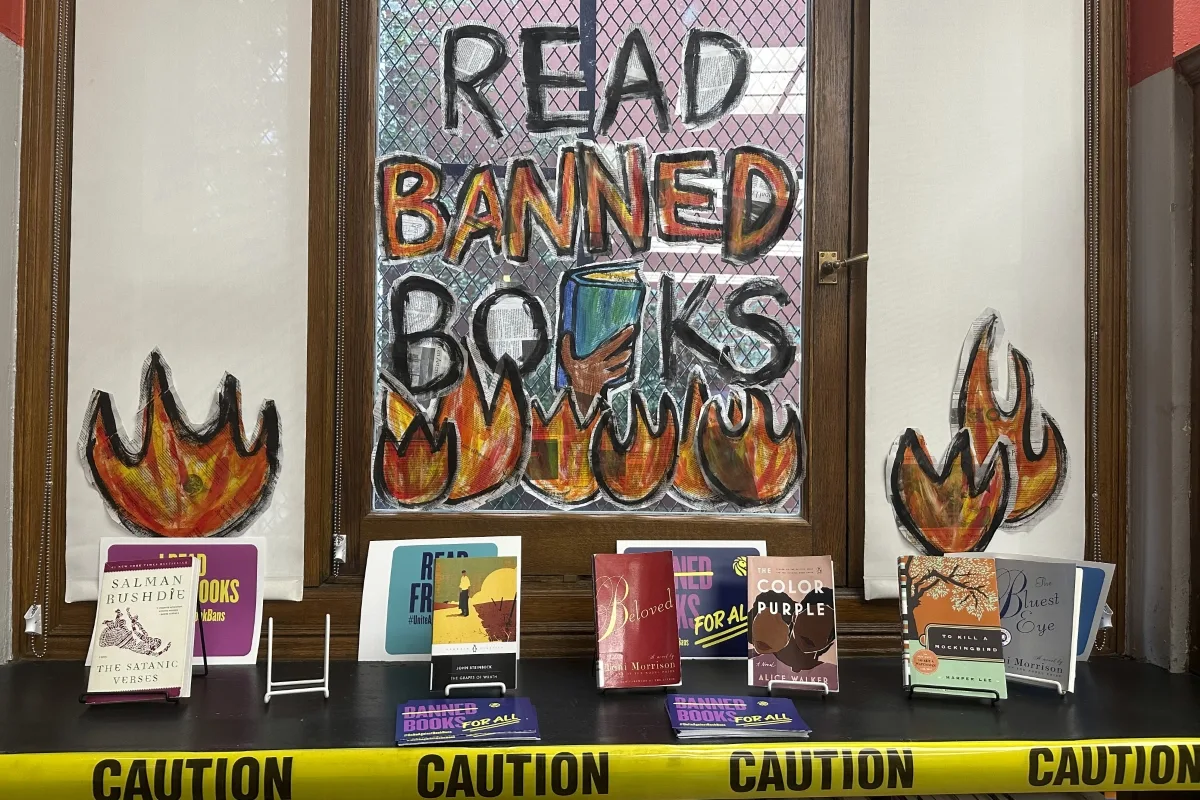
A Banned Books Week display is at the Mott Haven branch of the New York Public Library in the Bronx borough of New York City on Saturday, October 7, 2023. (AP Photo/Ted Shaffrey)
An adult man with special needs is shot in the back of the head by his cousin; a young girl and her boyfriend die by suicide as a result of a misunderstanding mitigated by their parents’ anger; a teenage boy runs away from boarding school to New York City and crosses paths with a prostitute, drinks alcohol, and thinks about suicide; an anthology includes stories that promote prostitution, sex, violence, genocide, slavery, and eating children.
Why would any teacher or parent want their child reading about any of this? Well, what if I told you that each is commonly included in many high school English and history classes and are in the school library, as well.
Join with me now as I clutch my pearls.
In case you haven’t figured it out, my sarcasm is intentional. Each of the above stories (Of Mice and Men, Romeo & Juliet, The Catcher in the Rye, and The Bible, respectively), have significantly contributed to our literary canon, cultural conversations, and perhaps most importantly, to the lives and growth of countless readers of all ages. They also have one very significant thing in common: They are all banned books.
Nationwide, book bans are a hot button issue. According to PEN America, a nonprofit that advocates for free speech, between July 2021 and March 2022 there were 1,586 book bans in 86 school districts across 26 states. According to the American Library Association, preliminary data from the first half of 2023, there has been a surge in book challenges in public libraries. There have been 531 documented attempts to censor books with 3923 individual titles being targeted. Ninety-two percent of those book challenges were part of attempts to censor multiple titles, compared to 90% during the first eight months of 2022.
Book bans are nothing new. Since the beginning of the written word, people have argued over the censorship of books. The very first book ban in the United States was The Meritorious Price Of Our Redemption by William Pynchon, a Massachusetts Bay Colonist. In it he argued that anyone who obeyed God, followed Christian teachings, and was an overall good person, could get into heaven. This was in direct contrast to the Puritan belief in predestination, that only a select few were predestined to go to heaven. His fellow colonists responded by burning and banning the book, and calling him a heretic, one of the worst insults of the time. If he were a woman, they probably would have hanged him for witchcraft.
It’s hard not to look back on a story like this in disbelief. Except that these kinds of bans keep happening in every generation, with different marginalized groups as the target. The earliest recorded book bans centered on religious differences brought on by religious leaders. In the years leading up to the Civil War, Harriet Beecher-Stowe’s Uncle Tom’s Cabin was targeted as an anti-slavery book. Textbooks not sympathetic to the South’s experience were targeted in the Jim Crow Era; books that were perceived to sympathize with socialism or Communism were targeted during the McCarthy Era; and more recently, the most common targets of bans are books with LGBTQ+ characters.
Increasingly in New Hampshire, conservative activists, legislators, parents, and the Department of Education, are following suit. They are fanning the flames of division by seeking to not only prevent their own children from reading particular books in school, but also to prevent all children from reading those same books in school.
In September, officials from the Department of Education issued an advisory that teachers should alert parents two weeks in advance of any material that could be “objectionable,” which includes anything about “human sexuality.” This is wildly unhelpful advice that was clearly not written by anyone with experience in an actual classroom. All it does is elicit questions that do not have an answer.
RELATED: New Hampshire teachers are quitting due to pay, politics, safety
Who determines what is “objectionable” and how wide are the parameters around “human sexuality?” Does this include any references to any relationship? Should I no longer mention that I have a husband and should I leave my wedding ring at home? Did I need to notify parents when my sophomores read The Crucible because an important conflict in the story is an affair between John Proctor and Abigail Williams? Who decides whose perspective carries weight?
Proponents of book bans argue that parents should decide what their children read. There is much truth in this sentiment. It makes sense for parents to be a part of the conversations involving their children and to be partners in their education. There are many positive benefits for children when their parents are invested in and involved in their schooling.
Here’s the thing that is conveniently left out of these inflammatory conversations: Parents have always and will always have rights and a voice in their child’s education. If I don’t want my daughter to read something, then I have the right to say so.
Further, what about my right as a parent who wants her children reading books from diverse authors and diverse perspectives? What about the LGBTQ+ student sitting in my classroom who is uncomfortable with the absence of literature that represents their lived experiences? What about my students who are not safe at home and who look to literature as an outlet, or in solace, or as a roadmap?
We might wonder, does it really matter? If a young person wants to read a book and it’s not available at school, can’t they just get it elsewhere? Is it really that big of a deal?
It matters a lot. It matters because in labeling content “objectionable” we are saying that our students are objectionable. Jarrett Krosoczka, the author of Hey, Kiddo, a book that has been the subject of recent book bans, says it best. “I believe parents think they are protecting their kids from difficult truths, or truths about which they’re not familiar. Missing in that outrage is that their kids’ peers are indeed living the lives featured in those books. So, by saying a book is inappropriate, they are saying that the other kids themselves are inappropriate.”
At the core of these discussions is how we view our young people and the purpose of their education. Do we see our students as curious and with intellectual promise who can develop empathy through critical thinking from multiple diverse perspectives? Or do we see them as buckets into which we pour our predetermined knowledge and then expect them to digest it and regurgitate it in ways that please us?
We are kidding ourselves if we think this isn’t having a chilling effect in our classrooms; we are kidding ourselves if we don’t think that effect is intentional; and we are kidding ourselves if we think it will go away on its own. Not surprisingly, NH is facing an aging population, shrinking student enrollment, and an unprecedented teacher shortage. We are kidding ourselves if we don’t think it’s all connected.
Well written stories allow us to walk around with someone else and try on their clothes for size. While we might not always fit, we still get a sense for what it feels like and how we might feel inside while wearing them. Just because something might not fit well for me, does not mean that it won’t for someone else. Who am I to suggest that what makes me comfortable is what will work for others?
New Hampshire values our freedom in a way that is different from other states. We pride ourselves on individual freedoms, local control, and we practically have the Live Free or Die state motto tattooed on our foreheads at birth. The freedom to read is as much a part of that as anything else, and it is because of it that we cannot let the few but loud voices who seek control to threaten that way of life.

NH Supreme Court’s open enrollment ruling could pit public schools against each other
In 2015, before school choice emerged as one of the more contentious education issues in New Hampshire, Franklin became the first district in the...
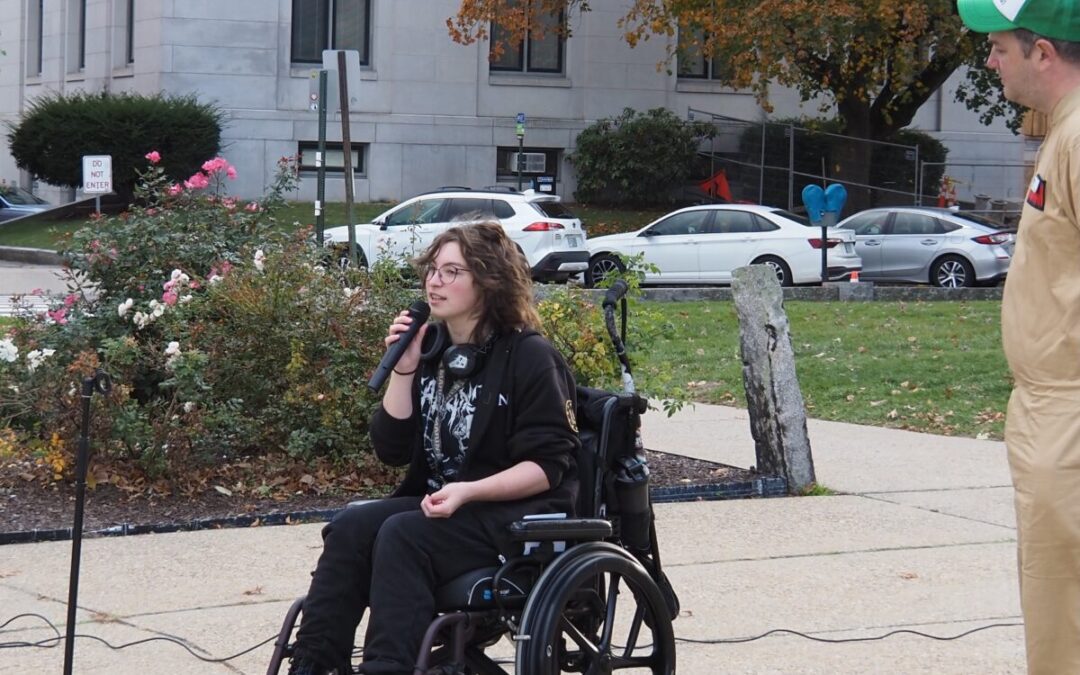
New Hampshire disability community rallies against federal cuts to special education
By William Skipworth / New Hampshire Bulletin Angelina Leo, an Exeter High School senior, said that without the special education services she...
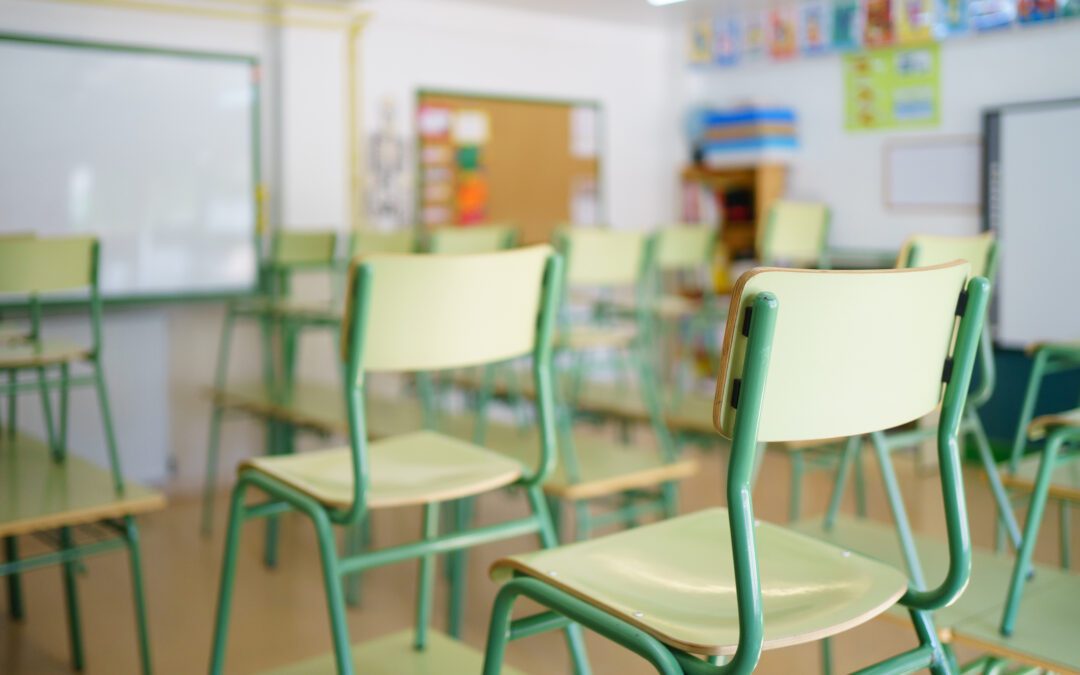
Republicans advance bill for universal school district budget caps
By Ethan DeWitt/ New Hampshire Bulletin Republican lawmakers are reviving an effort to impose mandatory budget caps on school districts, arguing the...

New Hampshire has one of highest student loan payments in US, according to WalletHub
Do you have student loans to pay off? You're certainly not alone. Personal finance company WalletHub released its list of states with the...

Federal judge bars NH from enforcing DEI ban on most school districts
A federal judge on Oct. 2 blocked New Hampshire's new ban on diversity, equity and inclusion initiatives in public schools from taking effect,...

The oldest college in New Hampshire is older than the U.S., one of top 15 U.S. colleges
It's one of the best colleges in the country, according to U.S. News & World Report 2026 ranking of the country's best colleges, but it also...

